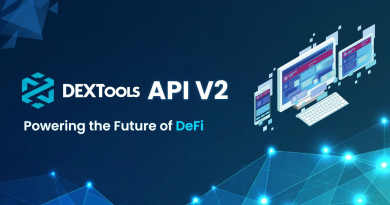Different Types of Fundraising Available for Cryptocurrency Projects
What is Fundraising in the Cryptocurrency Space?
Cryptocurrency fundraising methods overview Source: Blockchain-Ads.com
Fundraising is the process through which startups and early-stage companies can raise capital to finance their growth and development. Traditionally, venture capital firms invest in early-stage companies in exchange for equity or ownership stakes in the company, with the expectation of high returns on investment if the company succeeds.
The cryptocurrency industry features venture capital funding alongside various other forms of fundraising methods that have revolutionized how blockchain projects secure financial backing.
Types of Fundraising in the Cryptocurrency Industry
The cryptocurrency industry offers several fundraising methods used to raise capital for new projects, including:
Initial Coin Offerings (ICOs)
ICO fundraising mechanism explained Source: Investopedia
ICOs represent a fundraising mechanism where a cryptocurrency project issues new tokens to investors in exchange for established cryptocurrencies like Bitcoin or Ethereum, or sometimes fiat currency. ICOs provide early access to cryptocurrency projects that have the potential for high rewards but come with significant risks, such as regulatory uncertainty, project failure, fraud, market volatility, and technical vulnerabilities.
Key characteristics of ICOs include:
- Direct token sales to the public
- Early-stage project funding
- High risk, high reward potential
- Limited regulatory oversight in many jurisdictions
Venture Capital Funding
Venture capital investment in crypto Source: The New York Times
Venture capital funding is a form of private equity investment where investors provide capital to early-stage, high-growth startups in exchange for equity or ownership stakes in the company. This can include multiple investment rounds, such as seed funding, Series A, Series B, and beyond. Each round aims to scale the business, achieve specific milestones, or expand operations.
Venture capital in crypto typically involves:
- Professional investment firms
- Due diligence processes
- Mentorship and strategic guidance
- Multiple funding rounds with increasing valuations
Decentralized Autonomous Organizations (DAOs)
DAO governance and funding structure Source: Avast
Decentralized Autonomous Organizations (DAOs) can pool funds from members for specific projects, with decisions and allocations managed by the community of token holders. DAO community fundraising offers benefits such as decentralized decision-making and community participation, but also poses risks regarding poor governance or fraud.
DAO fundraising features:
- Community-driven funding decisions
- Transparent governance mechanisms
- Token-based voting systems
- Collective ownership and responsibility
Simple Agreement for Future Tokens (SAFT)
SAFT legal agreement template Source: James Bachini
Simple Agreement for Future Tokens (SAFT) arrangements involve investors providing capital to a project in exchange for a promise to receive tokens in the future. These tokens are typically delivered when the project’s network or platform becomes operational or reaches certain predetermined milestones.
SAFT agreements typically include:
- Future token delivery commitments
- Milestone-based distribution
- Legal compliance frameworks
- Investor protection mechanisms
Investor Risks in Cryptocurrency Project Fundraising
Regulatory and Legal Risks
The legal and regulatory environment for cryptocurrencies is constantly evolving. Changes in regulations can affect a project’s viability, token legality, or investor rights, potentially leading to financial losses. Investors must stay informed about regulatory developments in their jurisdictions and globally.
Project Failure and Speculative Nature
Blockchain project funding challenges Source: 101 Blockchains
Many cryptocurrency projects are speculative in nature and may fail to deliver on promises or achieve commercial success. Investors may lose their entire investment if a project fails or doesn’t reach development milestones. The high failure rate in the crypto space makes thorough due diligence essential.
Fraud and Security Risks
Fraud, such as exit scams or Ponzi schemes, has affected the cryptocurrency space significantly. Investors face the risk of being deceived by illegitimate projects or those that misrepresent their capabilities and intentions. Common fraud types include:
- Exit scams where developers disappear with funds
- Ponzi schemes promising unrealistic returns
- Fake partnerships and misleading marketing
- Technical vulnerabilities and smart contract exploits
Market Volatility
Crypto market volatility analysis Source: Blockworks
Cryptocurrency markets are known for extreme volatility, which can significantly impact token values and investor returns. Price fluctuations can be influenced by market sentiment, regulatory news, technological developments, and broader economic factors.
Conclusion
The cryptocurrency fundraising landscape offers diverse opportunities for both projects and investors, from traditional venture capital to innovative methods like DAOs and SAFTs. However, these opportunities come with substantial risks that require careful consideration and thorough research. Potential investors should understand the different fundraising mechanisms, conduct proper due diligence, and only invest what they can afford to lose in this rapidly evolving and highly speculative market.



